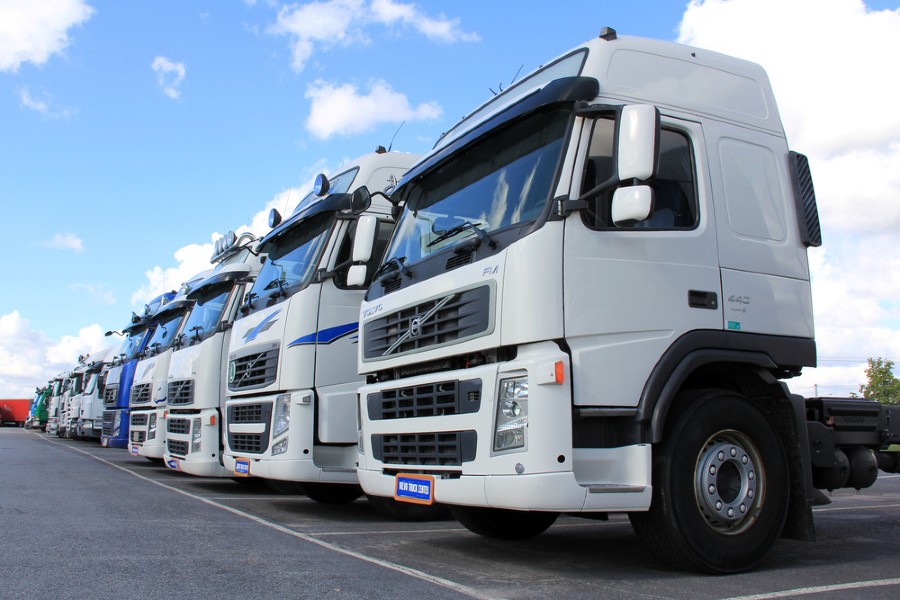
By Bretton Love
Choosing the right truck wheels can significantly improve your vehicle’s performance and durability.
In this comprehensive guide, you’ll discover crucial factors to consider while selecting the perfect wheels for your truck.
By carefully balancing aesthetics, durability, and performance requirements, you can maximize your truck’s potential and ensure a smooth, enjoyable driving experience. So, let’s dive into the world of truck wheels and find the ideal match for your specific needs.
Basic Terminology
In your journey to choose the right truck wheels, it’s essential to understand some basic terms.
First, the rim is the circular part of the wheel that holds the tire, while tires are the rubber part that contacts the road.
The number of ply refers to the tire’s layers affecting its strength and flexibility. A higher ply usually means a more durable tire.
The aspect ratio is the tire’s height to its width ratio. Lower aspect ratios mean wider and sturdier tires for your truck. The offset is the distance between the wheel’s mounting surface and its centerline.
Proper offset ensures optimal wheel alignment, handling, and suspension performance for your truck.
Wheel Materials
When choosing truck wheels, consider the material, as it plays a crucial role in performance and durability. Two popular options are aluminum and steel wheels.
Aluminum wheels are lightweight and offer better acceleration and fuel efficiency. Forged alloy wheels, a type of aluminum wheel, are particularly strong and durable.
Steel wheels are heavier but provide excellent strength and impact resistance. They are ideal for off-roading and heavy-duty applications.
Your choice depends on your driving style and the terrain you encounter. Remember, each material affects your truck’s performance differently.
Factors to Consider When Choosing Truck Wheels
Size Compatibility
When selecting truck wheels, it’s crucial to ensure they are compatible with your vehicle’s make and model.
Check the manufacturer’s recommended wheel sizes and make sure they match your desired wheels. Incompatible sizes can negatively affect the performance and safety of your truck.
Tire Size and Type Compatibility
In addition to wheel size, consider the tire size and type you plan to use. Different tire sizes require specific wheel dimensions, so double-check that your chosen wheels are compatible.
This helps keep your truck’s speedometer, odometer, and braking system functioning accurately.
Driving Needs and Conditions
Consider your driving needs and terrain. If you frequently drive off-road or on rough surfaces, choose wheels and tires that provide optimal performance in those conditions. Be mindful of the materials and tread patterns, as these factors can impact your driving experience.
Performance and Durability
Performance and durability are key factors in selecting truck wheels. Research the materials and design aspects that contribute to a wheel’s overall strength and longevity. Additionally, ensure your chosen wheels can support the weight of your vehicle and any additional equipment you may have.
Fuel Economy
Fuel economy is another important aspect to consider. Some wheels can aid in improving fuel efficiency by reducing weight and rolling resistance. This not only saves you money but also lowers your vehicle’s environmental impact.
Budget
Lastly, keep your budget in mind when choosing truck wheels. While more expensive wheels may offer improved performance, remember to weigh the benefits against your financial constraints. There are numerous quality options available at various price points, so take the time to find the best fit for your needs.
18 Wheeler vs Smaller Trucks for Business
When considering the right truck for your business, it’s essential to compare the benefits of an 18 wheeler versus smaller trucks.
18 wheelers, also known as big rigs, typically have higher capacities and longer-range, making them ideal for large-scale operations or long-distance hauling.
The big rigs such as semi trucks have eighteen wheels in total, providing stability and support for heavy loads.
On the other hand, smaller trucks often have six or ten wheels, depending on their axle configuration. These vehicles offer lower operational costs, better fuel efficiency, and are easier to maneuver in urban areas.
When evaluating your needs, consider factors such as transporting capacity, driving conditions, and budget constraints to make an informed decision for your business.
Styles and Finishes
When choosing truck wheels, you’ll find a variety of styles, colors, and finishes to consider. Popular finishes include chrome and black, offering both aesthetics and durability.
Examining the design of the spokes and exploring textures will help you find the perfect combination for your truck.
Tire Types and Their Suitability
All-Season Tires
All-season tires are designed for on-road performance and provide a balanced combination of traction, grip, and tread life. They are suitable for most light trucks, SUVs, and crossovers.
These tires have moderate tread patterns, making them ideal for a variety of weather conditions. However, they might not be the best choice for extreme off-road conditions.
Mud-Terrain Tires
Mud-terrain tires are specifically designed for off-road adventures. They feature aggressive tread patterns and deep tread depths, providing excellent traction on muddy, rocky, and uneven surfaces.
Although they offer outstanding off-road capabilities, their on-road performance and overall comfort levels might be compromised due to increased road noise and reduced fuel efficiency.
All-Terrain Tires
All-terrain tires are a versatile option, offering a combination of on-road comfort and off-road performance. They have a balanced tread pattern, providing good traction on various terrains without sacrificing ride quality.
These tires are suitable for drivers who occasionally venture off-road but mostly drive on highways and city streets.
Winter Tires
Winter tires are designed for enhanced grip and traction in cold, snowy, and icy conditions. They feature a soft rubber compound and unique tread patterns, optimized for maximum contact with the road.
While excellent for winter driving, they are not ideal for year-round use, as they wear faster in warmer temperatures.
Street Tires
Street tires, also known as performance tires, prioritize on-road handling and responsiveness. They have a low-profile design, stiffer sidewalls, and a shallow tread pattern, ensuring optimal grip for cornering and high-speed stability. However, these tires are not suitable for off-road adventures or extreme weather conditions.
Safety and Comfort
When choosing the right truck wheels, prioritizing your safety and comfort is essential. Always consider the right tire pressure, as it impacts your truck’s handling and grip on the road.
Proper tire pressure ensures a comfortable and safe driving experience, reducing noise and vibration.
Don’t forget to select tires that balance performance and durability while offering a smooth and quiet ride for the most enjoyable experience.
Wheel and Tire Maintenance
Maintaining your truck wheels and tires is crucial for optimal performance and extending their lifespan.
Rotate your tires frequently based on your truck’s usage and tire wear to ensure even wear and tear. During rotations, inspect your tires for damages or signs of wear.
Don’t forget to maintain consistent tire pressure after rotation. Proper wheel balancing helps reduce any vibrations you might feel while driving.
A precise bolt pattern is necessary for tight wheel mounting and spreading the weight evenly. Stick to a friendly maintenance routine to keep your truck wheels in great shape.
Key Takeaway
Choosing the right truck wheels is crucial for enhancing performance and durability. Understanding basic terminology, considering wheel materials, size compatibility, tire size and type, driving needs, performance, durability, fuel economy, budget, and styles are key factors to guide your decision-making process.
Additionally, comparing 18 wheelers to smaller trucks for business purposes and exploring tire types and their suitability can further inform your choices. Prioritizing safety, comfort, and proper wheel and tire maintenance will ensure a smooth and enjoyable driving experience.
This content is part of the HWM Partnership.
- Exposure To THC In Breast Milk May Not Harm Infants Right Away, Study Finds
- Ballet Hispánico’s Quinceañera Gala Raises Over $1.3 Million For Arts And Community
- FTC Investigating TikTok Over Data Privacy Protocols From Harlem To Hollywood
- Sponsored Love: Unveiling SEO Success, The Power Of Paid Guest Post Services On Fiverr
- Black Public Media Awards For Film And Immersive Media Projects
Become a Harlem Insider!
By submitting this form, you are consenting to receive marketing emails from: Harlem World Magazine, 2521 1/2 west 42nd street, Los Angeles, CA, 90008, https://www.harlemworldmagazine.com. You can revoke your consent to receive emails at any time by using the SafeUnsubscribe® link, found at the bottom of every email. Emails are serviced by Constant Contact








